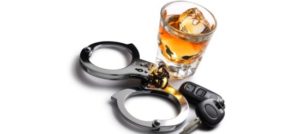Defenses to DUI (DWI, Driving While Intoxicated, Driving Under the Influence, Drunk Driving) at trial typically challenge the reason for the traffic stop in the first place, whether the arresting officer had sufficient evidence to arrest the person and whether the evidence presented at trial establishes proof beyond a reasonable doubt that the person is guilty. The first defense to DUI is usually whether or not the police had authority to pull the car over. Police may stop a vehicle any time they see a law being broken in front of them, or if they have a reasonable suspicion that the driver or an occupant of the car is breaking the law or has recently broken the law. This means that the police can pull a person over and investigate a person whose car has a burned out tail light or would otherwise not pass inspection. Another example is where police pull over someone and detain them briefly in order to determine if they are a person of interest in a crime. With everyone having a cell phone, many DUI arrests are made after someone calls to inform police of a drunk driver. In most cases the arresting officer has seen the person’s driving behavior himself and that is the basis for the stop. The reason for pulling a person over does not need to have anything to do with the offense of DUI, and doesn’t even have to be charged as a separate offense or proven beyond a reasonable doubt at trial. The police officer just has to be able to articulate a reasonable suspicion that some law was being broken.
The second defense to DUI is whether the police had authority to arrest the person for drunk driving. This is important because once a person is arrested for DUI they are required to give a sample of breath or blood to determine their blood alcohol level under section 18.2-268.2 of the Code of Virginia (Implied Consent to post-arrest testing to determine drug or alcohol content of blood).
Police usually establish probable cause for arrest for DUI by the following:
Observations of the officer – smell of alcoholic beverage, red eyes, slurred speech, stumbling, confusion, driving behavior, etc.;
Performance of the Field Sobriety Tests (FST) – These road side tests can include reciting the ABC’s, nine step walk and turn, touching the nose, finger dexterity test, etc. You do not have to take these tests;
Preliminary Breath Test – This is the hand held breath tester that most Police carry on the road. It is about the size of a deck of playing cards and has a short straw to blow into. Unlike the Breathalyzer under the implied consent law, you do not have to take this breath test and your refusal to take the test can not be held against you. If you do take this test, the fact that it showed some alcohol present in the breath test can be used by the Commonwealth to prove justification for the stop, but the exact results are not admissible;
Statements of the Defendant – In many cases the person who is pulled over will make statements that they are drunk or that they were drinking. You do not have to make any statements about whether you were drinking or are intoxicated. Your refusal to answer those questions can not be used against you.
The second defense to DUI attacks the sufficiency of the evidence that the Police have collected in order to justify an arrest (and Breathalyzer blood alcohol analysis). The less information the Police have to justify the arrest the greater your chance of successfully defending a charge of drunk driving. For example if a person doesn’t make any statements to the officer, and refuses to do the preliminary breath test and the field sobriety tests, then the Commonwealth has to prove by only the observations of the officer that there was probable cause for the arrest. In some cases this is enough, but if the officer does not establish probable cause by his testimony, your case could be dismissed.
The third defense to DUI challenges that the evidence taken as a whole, does not establish guilt beyond a reasonable doubt. This defense is made less important than the others, especially the second defense, because of the presumption statute, also known as section 18.2-269 of the Code of Virginia.
(Presumptions from alcohol or drug content of blood). This statute says that a person whose Blood Alcohol was above 0.08 is presumed to be under the influence. Assuming the Blood Alcohol was actually above 0.08, exclusion of the Blood Alcohol evidence (the goal of the second defense to DUI) is preferable to attempting to overcome the presumption that the state creates. That statute, along with the Implied Consent Statute 18.2-268.2 provides that if the Government can prove that there was probable cause to arrest a person for drunk driving, then that person is compelled to give a breath test for analysis and if the results show the Blood Alcohol to be 0.08 or above, that person is presumed to be guilty of DUI.
Anyone can see that the laws are designed to give every advantage to the Commonwealth and given the harsh penalties for DUI, anyone charged with DUI or DWI in Virginia should obtain the services of an attorney. At the Law Offices of Joseph T. Brown PLC we will analyze your case for all possible defenses and fight for you in the courtroom. If you are charged with DUI in a Fredericksburg, VA area court such as the courts of Stafford, Spotsylvania, King George, Fredericksburg or Caroline, call the Law Offices of Joseph T. Brown PLC at 540-786-7700 for a free consultation to discuss your case.
